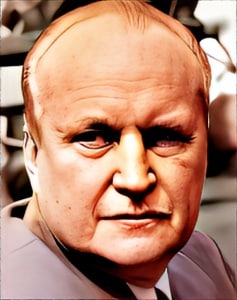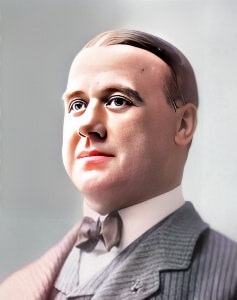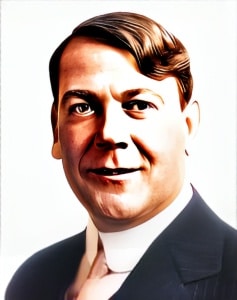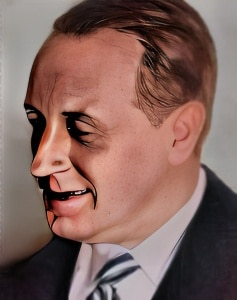 Roscoe Conkling “Fatty” Arbuckle was a beloved and influential figure in the early years of American cinema.
Roscoe Conkling “Fatty” Arbuckle was a beloved and influential figure in the early years of American cinema.
Born on March 24, 1887, in Smith Center, Kansas, Arbuckle’s career spanned the silent film era, during which he became a comedic icon known for his physical humor and slapstick comedy. His contributions to the world of film left a lasting legacy, and his tragic legal troubles remain a notable chapter in Hollywood’s history.
Arbuckle began his career in vaudeville and later transitioned to film, becoming one of the first silent film stars. His rotund appearance and jovial demeanor earned him the nickname “Fatty.” He quickly rose to fame in the Keystone Studios, where he collaborated with other comedy legends like Charlie Chaplin and Buster Keaton.
One of Arbuckle’s most famous films is “The Butcher Boy” (1917), directed by himself and co-starring Buster Keaton. This silent short film is a classic example of early comedy shorts, featuring slapstick humor, pratfalls, and pie-throwing. The film’s success solidified Arbuckle’s status as a major comedic talent.
Arbuckle’s career continued to thrive, and he became one of the highest-paid actors in Hollywood. His popularity allowed him to explore various roles and genres, further showcasing his versatility. His talent for physical comedy and the ability to connect with audiences through humor made him a beloved figure in the silent film era.
Despite his success, Arbuckle’s career took a tragic turn in 1921 when he was involved in a highly publicized scandal. While hosting a party at a San Francisco hotel, a young actress named Virginia Rappe fell ill and later died. Arbuckle was accused of her assault and manslaughter, leading to a series of three trials that captivated the nation. Although he was eventually acquitted, the scandal tarnished his image and briefly derailed his career.
Following his legal troubles, Arbuckle faced a ban from acting and directing for a period, but he eventually made a comeback in the film industry, albeit with certain restrictions. He worked under pseudonyms, directing under the name “William Goodrich” and acting as “Will B. Good.” Despite the challenges he faced, Arbuckle’s talent and resilience allowed him to continue his work in cinema.
His successful return to the screen demonstrated the enduring nature of his talent and his ability to navigate the shifting tides of the film industry. He appeared in a series of comedy shorts and later made feature-length films.
Unfortunately, Arbuckle’s career was cut short when he passed away at the age of 46 on June 29, 1933, due to a heart attack. His death marked the end of an era in silent film comedy, leaving a void in Hollywood’s comedic landscape.
Today, Roscoe “Fatty” Arbuckle is remembered for his pioneering contributions to the world of film. His comedic legacy endures, and his work continues to be celebrated for its timeless humor and influence on future generations of comedians and filmmakers. While his career faced adversity, Arbuckle’s talent, resilience, and ability to make audiences laugh remain a vital part of the rich history of early Hollywood.

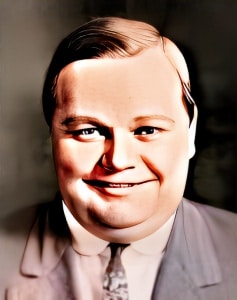 Roscoe Conkling “Fatty” Arbuckle was a beloved and influential figure in the early years of American cinema.
Roscoe Conkling “Fatty” Arbuckle was a beloved and influential figure in the early years of American cinema.